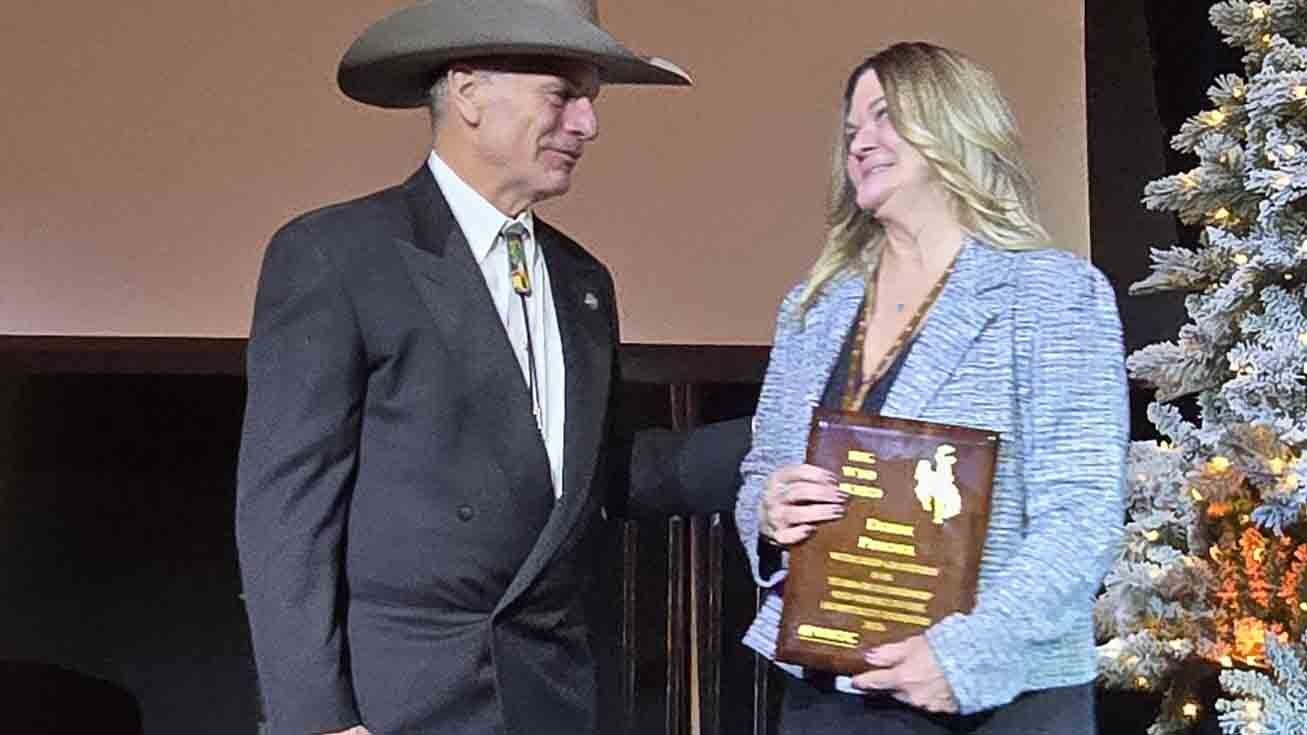Employees of Wind River Internet, which provides fiber optic and internet services around the Wind River Indian Reservation and Fremont County, do a lot of work in the backcountry of Wyoming in harsh conditions.
It would seem the last company that would consider electrifying its fleet.
Patrick Lawson, executive manager of Wind River Internet, testified at a Wyoming Public Service Commission hearing Wednesday that company officials did a cost study comparing its gas vehicles to what it would cost for electric vehicles.
They found electrifying their fleet would cut costs by up to half over the life of the vehicles. Besides savings from fuel, the maintenance costs of EVs is much lower.
Lawson told Cowboy State Daily he tested the ability of a Rivian and a Ford F-150 Lightning to handle the demands of the job over the past year.
“I was the only one to get to certain locations when it was negative 40 out,” Lawson said. “The gas vehicles wouldn’t start.”
He said that he can also use the power from the truck’s batteries for electricity in the field rather than carrying around a generator.
Lawson said they charge the vehicles at the office and drive them 100 to 250 miles per day. They’ve ordered four Ford F-150 Lightnings, which they expect to be delivered this fall.
Potentially Discriminatory
The PSC is looking to promote further electrification of the transportation sector in Wyoming, which would require the building of more charging stations to support EVs.
At Wednesday’s hearing, the PSC gathered public input on whether standards for electricity rates for charging station owners will be set by the utilities providing the power or the state.
The commissioners made no decision on the issue.
In its comments to the PSC, Rocky Mountain Power said that development standards to promote one sector of a competitive marketplace could potentially violate Wyoming law, which requires rates to be uniform.
“We think it could be potentially discriminatory,” said Stacy Splittstoesser, regulatory affairs manager for Rocky Mountain Power.
In its comments, Black Hills Energy said that rate design for EV charging is a key component to encouraging investments in charging station construction and EV adoption.
Following the development of an EV-only charging rate in Colorado, according to Black Hills Energy, the number of fast-charging stations increased.
Fleet Electrification
PSC Commissioner Mary Throne asked the representatives of Black Hills Energy and Rocky Mountain Power if they’ve seen a lot of companies or government entities electrifying their fleets.
Mike Carrington with Black Hills said in Colorado, the utility is seeing a lot of the large, multinational companies, such as UPS and Amazon, electrifying their fleets.
They’ve also had interest from school districts in Colorado.
However, that’s not the case in Wyoming. The Black Hills representatives said the utility has had some talks with Walmart, but nothing serious.
The utility’s other corporate partners haven’t expressed interest in electrification, likely due to the lack of regulations that require it.
Growing Demand
Lawson is also the owner of Wild West EV. The company has 10 Level 2 charging stations around Wyoming. These are slower than the Level 3 fast-charging stations, but a step up from the standard residential home charge.
In his testimony Wednesday, Lawson said he set out to build the stations because charging availability was so low in Wyoming.
The company works with businesses to partner with, and Lawson said they share a usage meter with the businesses.
However, Wild West EV is seeing an increase in station usage of 40% to 50% every year, Lawson said.
“We are getting to the point now where we’re going to need to be placing them on separate” meters, Lawson said.
One of the questions the PSC wanted to know is how demand charges would impact charging station businesses. These are charges based on the amount of energy used in a specified period of time.
Chris Petrie, PSC deputy chairman, asked Lawson if demand charge rates in Wyoming would impact his business.
Lawson said that as the company builds more stations, including Level 3 stations, it could become an issue.





